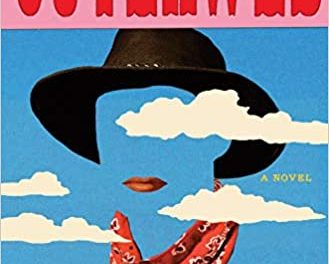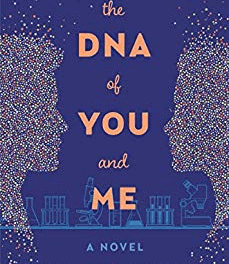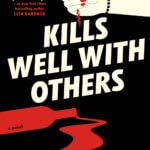Sometimes, the hardest thing to change is yourself. Eva Hagberg Fisher has written a gut-wrenching memoir about being being unloved and unloveable. This isn’t a typical love story—though Eva falls in love with Winston Fisher, her husband—but is a story about the love between friends. While dealing with multiple life-threatening illnesses (a brain hemorrhage from a cyst in her pituitary gland, ablation of an aberrant heart conduction pathway known as Wolff-Parkinson-White syndrome, and lastly, mast-cell activation syndrome in which her body literally became allergic to almost everything, Eva slowly learns to allow herself to be loved. She accepts and returns multiple friendships that others extend her, particularly Allison, who is dying from metastatic breast cancer, Lauren, who is bipolar, and Winston, Eva’s physicist husband, who believes in her and her symptoms when doctors are telling her she’s crazy.
There is a moment in the book in which Eva lists to Allison all the reasons she is unlovable, and Eva realizes those are the same traits for which people love her. Eva’s experiences with Allison give Eva the ability to allow people to approach and become close to her. Another great moment is when Eva allows herself to surrender. The writing is sometimes raw, sometimes a bit self-serving, sometimes a bit self-pitying, but overall it is an admirable account of a woman who overcomes addictions to alcohol and cocaine and the breakdown of her own body.
An important idea, though the violence aspect doesn’t play heavily in the book, Eva admits that even she, a woman, has learned not to believe other women, “And it wasn’t limited to illness. I thought about reports of sexual violence or assaults … it was easier for me to believe that the world was fundamentally safe … than it was for me to see how prevalent violence was. How prevalent, in my case, illness was.” As a female physician, I have treated many women whose physicians (usually male) have discounted their symptoms, chalking them up as being psychological rather than physical with a real underlying cause. How to be loved is also an accurate documentation of one woman working her way through multiple physicians, hoping each believes her and finds a bona fide cause for her symptoms. And also a look at how subtly the patriarchal beliefs of women as inferior, weaker, overly-emotional, and unbelievable have infiltrated our psyches, women included.
********************













